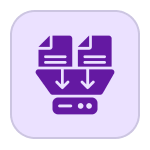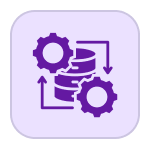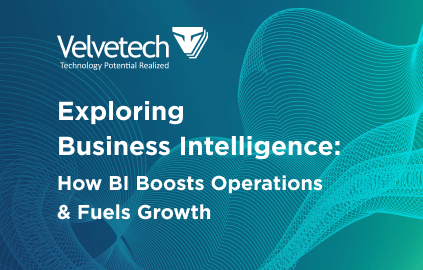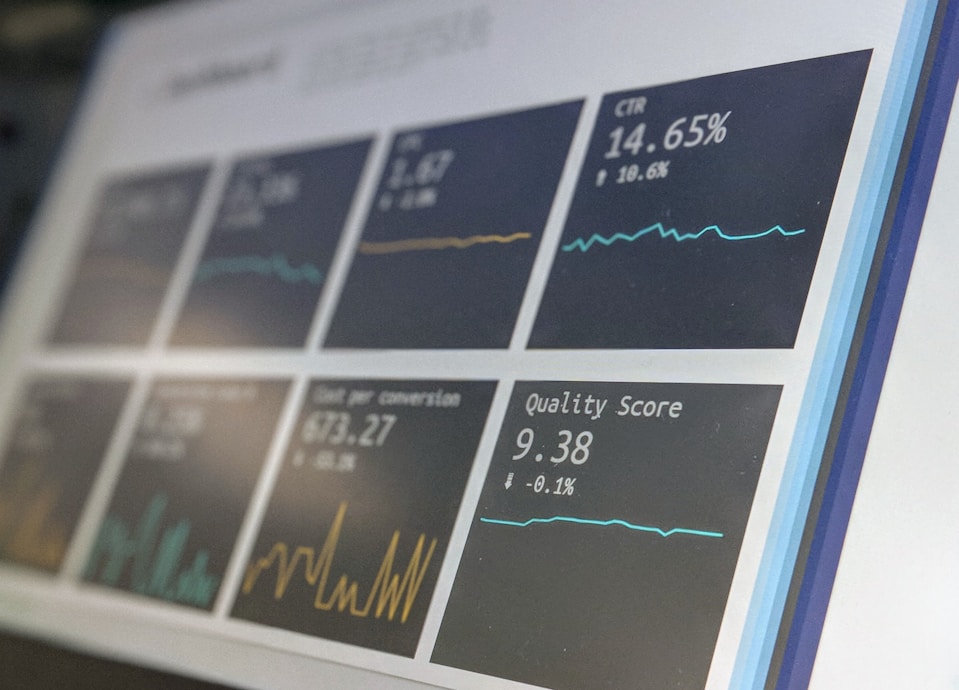Currently, digital information is one of the main cornerstones of the business world. Organizations from all kinds of industries are looking for optimal ways to utilize it for lasting growth. After all, there is a lot of volatility in the modern day and being equipped to deal with it is a must for company leaders.
“Digitally native organizations that are “insight-driven by default” show much higher resilience and are able to tighten their dominant market positions, even growing share value while stock markets tumble. These organizations are equipped to manage the crisis better, and are expected to recover and excel faster once markets and regulatory efforts return to normal.”
— Deloitte
To become more data-driven, companies are increasingly turning to data engineering for help. However, as the technologies surrounding digital information are constantly evolving, there are several data engineering challenges that your company may face on its journey.
So, in today’s post, we want to shed light on some of these common difficulties and how you can overcome them. That way, should any arise during your data engineering process, you’ll be prepared.
How Does Data Engineering Work?

As you know, companies often have a multitude of data sources. ERP systems, CRM tools, inventory management solutions, and the like. All of this software generates valuable details that can be used to fuel business growth. However, to capitalize on this properly, all of the digital information has to work together, and this is where the concept of data engineering comes in.
In simple terms, data engineering is the process of building platforms for the collection and usage of digital information in a way that benefits an organization. It is done to help manage the data flow and to develop a comprehensive infrastructure that fuels business intelligence.
Data engineering will often involve the development of ETL and ELT pipelines, creating data warehouses or lakes, and implementing various types of data analysis. So, it is quite a wide-ranging practice, but definitely, one that many companies can benefit from.
Discover the Differences Between Data Lakes and Data Warehouses
Common Challenges in Data Engineering
Since data engineering projects are gaining popularity and use cases are growing in complexity, there are quite many issues that teams may encounter along the way. Below, we’ll discuss the most common ones and share what you can do to deal with them or to bypass them altogether. We’ve broken them into six categories for your convenience.
1. Data Ingestion Challenges

One of the problems you might face in the first place while implementing a data engineering approach is connected to data ingestion. The main issue here lies in the variety of data as information comes from diverse sources with different formats and structures. Thus, it requires transformation before further processing and analysis.
Then there are potential issues with real-time data ingestion, which has to be done at a high speed. You should think about encompassing efficient and scalable data ingestion systems to handle large volumes of data and process it in real time.
On top of that, we can name data integrity and quality assurance as another challenge in this section. Inaccurate or inconsistent data can lead to incorrect analysis and insights. So it’s a good idea to implement data validation and cleansing processes in order to identify and address data quality issues during ingestion.
Challenges in a nutshell:
- Variety of data sources
- Ensuring data quality and reliability
- Handling large volumes of data
- Real-time data ingestion requirements
2. Data Integration Challenges

The next one of the problems we can highlight is data integration related to the connectivity of software solutions and data itself. One of the primary goals of any data engineering project is to effectively connect disparate information sources and integrate data from a range of systems. That, in and of itself, can be a challenge when you’re dealing with legacy systems that simply don’t have the built-in capabilities of connecting with modern software.
Find out how we performed VoIP System Integration with a CRM
In this regard, it’s a good idea to start by modernizing legacy software prior to doubling down on data engineering initiatives. Doing this before the start of a project will help minimize integration headaches down the line.
Apart from disparate systems, data that needs to be integrated can come with various formats, structures, and semantics. Thus it may require data transformation, mapping, and schema alignment to ensure compatibility and coherence across the integrated dataset.
Challenges in a nutshell:
- Data format and schema inconsistencies
- Dealing with disparate data systems and technologies
- Data transformation and mapping complexities
- Addressing data governance and compliance issues
3. Data Storage Challenges

There are two key challenges in the area of data storage. The first one is about accommodating the increasing volumes of datasets. To ensure that, data storage systems have to be able to seamlessly scale.
For example, data engineers can leverage options like distributed file systems and cloud-based storage services that can be easily expanded as data requirements grow, without compromising performance or incurring excessive costs.
The second challenge is data organization and retrieval. With massive amounts of data stored across various systems, it can get tricky to organize data in a way that allows for efficient and fast retrieval. Effective data indexing, partitioning, and data structure design are crucial to optimize data access patterns and minimize retrieval time.
Data engineers also need to consider the use of compression techniques and data encoding methods to optimize storage space utilization without sacrificing data integrity or accessibility.
Challenges in a nutshell:
- Choosing the right data storage technologies
- Scalability and performance considerations
- Data partitioning and indexing strategies
- Data security and privacy concerns
4. Data Processing Challenges

Every day, more and more digital information is created by businesses. Data from mobile apps, IoT devices, and other platforms is constantly generated. It’s easy to get overwhelmed by the seemingly never-ending influx of data.
Traditional processing techniques may struggle to handle such large volumes efficiently. To address this challenge, data engineers often employ distributed computing frameworks, such as Apache Hadoop or Apache Spark, which enable parallel processing across a cluster of machines, allowing for faster and more scalable data processing.
Another issue that may arise within this category is that data may be incomplete, contain errors, or exhibit inconsistencies, which can impact the accuracy and validity of analytical results. If many systems are using the same digital information and there are no real-time updates, inaccuracies can appear. Naturally, this is something you want to avoid because poor-quality data does nothing for your business.
A possible solution to this data engineering challenge is to establish a comprehensive data management strategy with a data governance plan. Doing so will help ensure that all data-related activities have someone in charge and that there are policies in place that help maintain the integrity of all your digital information.
Challenges in a nutshell:
- Processing data at scale
- Distributed computing and parallel processing
- Complex data transformations and aggregations
- Optimizing data processing pipelines
BI for Business
Find out the secrets of how business intelligence boosts operations and what BI tools and practices drive data analysis.
5. Data Quality and Governance Challenges

Data quality and reliability may cause additional issues in the data engineering field. That’s why it’s important to continuously implement data validation and cleansing practices to detect and handle data quality issues. This includes outlier detection, data imputation, and data validation rules.
Another challenge you may encounter is having to deal with regulatory compliance. If your business operates within the finance sector or the healthcare industry, data-related regulations like HIPAA, PCI DSS, and GDPR are likely to affect it.
Read up on HIPAA-Compliant App Development
On the regulatory landscape, things are always evolving, and ensuring that company operations are adhering to the latest requirements is a must. Unsurprisingly, this can pose a challenge.
The best way to deal with this is a combination of practices. Of course, it’s a good idea to keep monitoring any laws that may affect your business or even hire legal counsel. However, another good option is to work with data engineering specialists that have expertise in building compliant platforms and can share best practices with you.
Challenges in a nutshell:
- Data validation and cleansing
- Implementing data quality checks
- Establishing data governance frameworks
- Ensuring regulatory compliance
6. Data Pipeline Orchestration Challenges

Data pipelines orchestration can be quite complex and involve multiple stages and dependencies. This can be a challenge as coordinating and managing the execution of various data processing tasks across different systems or components is not an easy feat.
Data dependencies may exist between different processing stages or tasks, where the output of one task serves as the input for another. Thus managing these dependencies and ensuring the timely availability of required data inputs can be complex.
On top of that, while working with data pipelines, you may encounter various issues such as network failures, hardware failures, or errors in processing tasks.
To overcome these challenges, data engineers employ robust orchestration frameworks, implement fault-tolerant designs, and plan for scalability. It’s also a good idea to implement monitoring and troubleshooting tools. These practices help enable efficient and reliable data processing and ensure that you have a smooth flow of data through the pipelines.
Challenges in a nutshell:
- Managing complex data workflows
- Dependency management
- Error handling and monitoring
- Version control and deployment of data pipelines
Begin Your Data-Driven Journey
Preparation is key when you’re starting any data engineering project. Now that you’re aware of some common challenges that may arise along the way — you’re better prepared to handle them.
However, if you’re looking for some specialist advice or want to discuss a concrete initiative — don’t hesitate to reach out to our team. Velvetech’s experts are highly skilled in delivering successful data engineering services and would be happy to guide you on your journey or take development work off of your hands.































